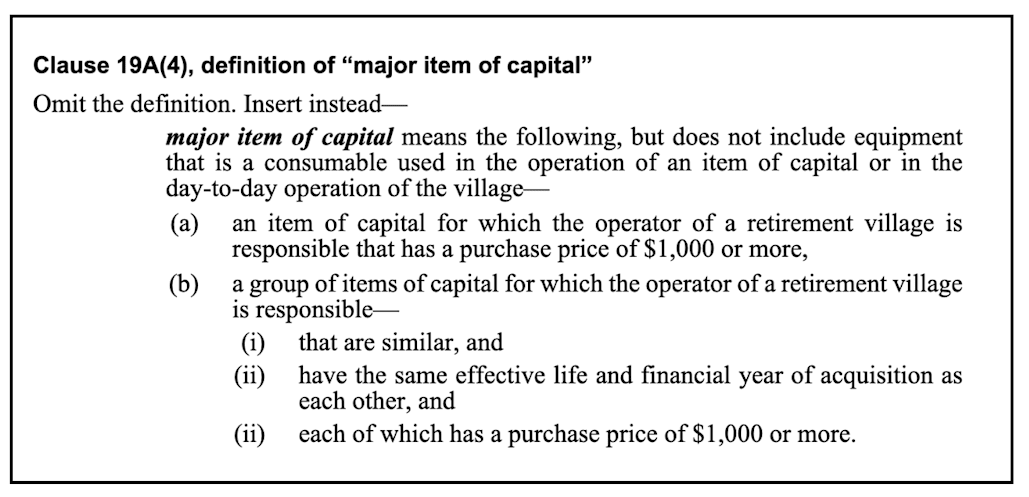Reforms to the Retirement Villages Act 1999 (NSW), which came into force on 1 July, require village operators to be highly accountable on the costs and management of village assets. See the amended regulation above.
The reforms, detailed by NSW Fair Trading, are meant to make the costs of living in a village clearer for residents and people thinking about moving into a retirement village.
From 1 July, village operators are required to:
- Prepare and keep up-to-date a 10-year asset management plan for the village's major items of capital (including items shared with other villages or aged care businesses),
- Record certain information in the asset management plan,
- Prepare a three-year report for the maintenance of major items of capital (extracted from the asset management plan), and include it in the annual budget process, and;
- Make the asset management plan available for all current and prospective residents at reasonable times.
The challenge for operators is the entry value of an asset – which has been positioned as $1,000.
Big admin burden
Operators state the admin burden will be crippling. The Government has relented to move the full compliance date from this September to July next year.
 We asked Domenic Fonte (pictured), CEO of AssetFuture, for clarification of the last point in the regulation (see above) which talks of ‘grouping’.
We asked Domenic Fonte (pictured), CEO of AssetFuture, for clarification of the last point in the regulation (see above) which talks of ‘grouping’.
Domenic gives the example of a village buying 30 plastic chairs at $100 each in one order. Grouped, they amount to $3,000 and so exceed the $1,000 threshold and consequently fall under the AMP.
Operators face the prospect of having to trace all purchases back over years to establish the AMP, which could entail thousands of items in a village.
This will then require additional staff and specialist software like AssetFuture.
"These new reforms will protect residents in retirement villages, with operators being accountable for the costs of managing assets, including fixtures and fittings, so there will be no hidden surprises for residents," said Goulburn NSW MP Wendy Tuckerman, who said there was a need for increased accountability and transparency in the retirement village sector.
42 days and 12 months buybacks
In addition, from 1 July 2021, operators must ensure residents stop paying recurrent charges for general services, such as gardening, administration, cleaning, 42 days after they leave their retirement village.
NSW Minister for Better Regulation and Innovation, Kevin Anderson, said the reforms are in addition to changes brought in earlier this year, including improving access to exit entitlements and creating a new mechanism to support residents moving to aged care.
"Under our reforms, for the first time ever, every retirement village resident can apply for the operator to buy back their unit if it remains unsold for 12 months after they move out," Mr Anderson said.
"In addition, every resident who moves into aged care is entitled to have their costs paid by the operator as soon as they leave their village regardless of if their unit remains unsold.
"We committed to make retirement village fees fairer, and these reforms will put residents first, making sure the sector is offering safe and affordable options for our parents and grandparents," Mr Anderson added.
Other states are set to follow NSW, as we reported for Queensland HERE.










